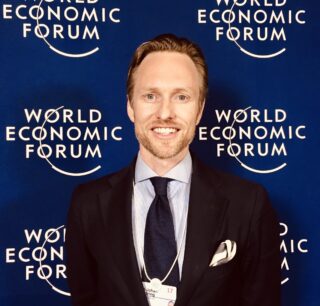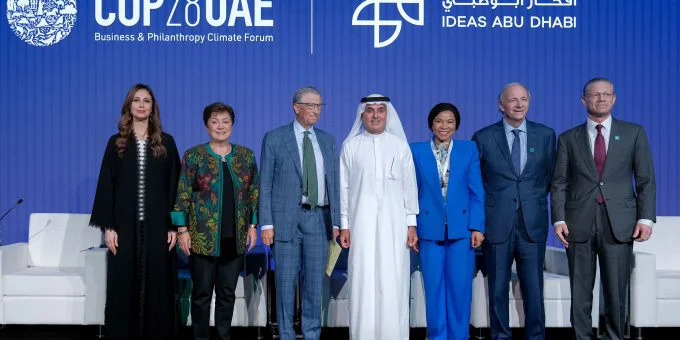Rapid globalization and technological shifts are making the world more interconnected than ever before. Succeeding in this world requires a new set of abilities, which do not fit within traditional concepts such as IQ and EQ. Instead, they need a unique measurement – WQ, or World Quotient – a new framework that brings human capital development into the new global world of work.
Competencies that help us compete with Exponential Technologies

Based on the Council of Europe and OECD’s framework of global competence , there are four dimensions of the World Quotient: Skills, Knowledge, Values, and Attitudes. At EF Education First, we have adopted this framework for the development of the WQ, and below are two examples of competencies within each of these four dimensions. In addition to being essential for success in a global environment, these competencies all help differentiate human capability from that of exponential technologies, such as artificial intelligence.
Skills
- Perspective Taking – the capacity to identify and take on conflicting points of view to understand how other people think and feel, and how various perspectives relate to one another.
- Adaptability – the self-awareness that allows us to adjust our thoughts, feelings, and behaviors and respond effectively and appropriately to new contexts and situations.
Knowledge
- Intercultural Knowledge – the experience and cultural knowledge accumulated from living abroad and working within a truly international environment, which allows us to be informed and skilled global workers.
- Intercultural Communication – the ability to effectively and respectfully interact with people who appear to have different values and belief systems.
Values
- Diversity Experience – the capacity to engage fully with people whose backgrounds and personal values are different from one’s own.
- Interconnectedness – the understanding that all countries and humans are interlinked and affected by one another.
Attitudes
- Efficacy – the belief that we can drive change in the world through our work.
- Ambiguity Tolerance – the capacity to maintain a positive attitude towards uncertain situations to evaluate them neutrally, and deal with them constructively.
In contrast to an individual’s IQ level, which researchers suggest remains stable relative to peers during adult life, a person’s WQ can be nurtured through deliberate practice. Individuals and organizations alike can improve their WQ by devising strategies that promote intercultural connections, creating space for reflection and codifying the dimensions of WQ into individual
Supported by a Growing Body of Research
In recent decades, research efforts around ‘global competencies’ have increased. Building on the work of scholars such as Hett and Kelley & Meyers , the Council of Europe in 2016 identified more than 100 domains of competence needed to sustain a multicultural citizenry . Further developing this work, the OECD published its PISA global competency framework, which defines strategies for teaching and assessing global competence.
Taken together, this growing body of work reflects an increased awareness among academic institutions, public sector organizations, and the private sector that these global competencies are precursors to developing their human capital: when people have the ability to interact cross-culturally, they can be more productive and successful in a globalized society.
Responding to Demand from Government, Corporations, and Youth
EF Education First created the World Quotient to respond to the need of governments, corporations, and individuals to know which competencies to measure in order to succeed in the new world of work, and to identify a common vernacular around these themes.
Governments face challenges that are ever more complex. In addition to grappling with how to achieve actionable cooperation on global challenges such as climate change and mass migration, leaders are struggling to provide education that lead to meaningful employment . Countries with a young population engaged in labor-intensive production are particularly susceptible to automation in the fourth industrial revolution and will need to reskill at a massive scale. In this context, the WQ framework can help identify which competencies will facilitate diversification, job creation and sustainable economic growth.
Organizations across the spectrum are dealing with increasing degrees of uncertainty about their future talent needs. WQ can help them focus on building competencies that will help them thrive in an increasingly competitive environment. The framework also supports the development of inherently human skills, which allow employees to stay competitive in an era of exponential technological shifts.
For individuals, WQ serves as a way to contextualize the competencies they seek from professional activities. In particular, for today’s youth who will not settle with spending their waking hours working in an office , and who change jobs more frequently than ever before , WQ provides a framework to evaluate professional opportunities and employers with a view to growing a transferrable toolbox of competencies.
The Future of the World Quotient
The development of the World Quotient framework continues through academic research and practical application, with a research project underway to develop WQ for executive leadership. Additionally, EF Education First is creating a WQ assessment and opportunities for learners of all ages to find their global competency baseline. Eventually, with a robust and adaptable WQ framework, individuals, corporations, and governments will have the tools to better assess and prepare for our rapidly changing world of work.





